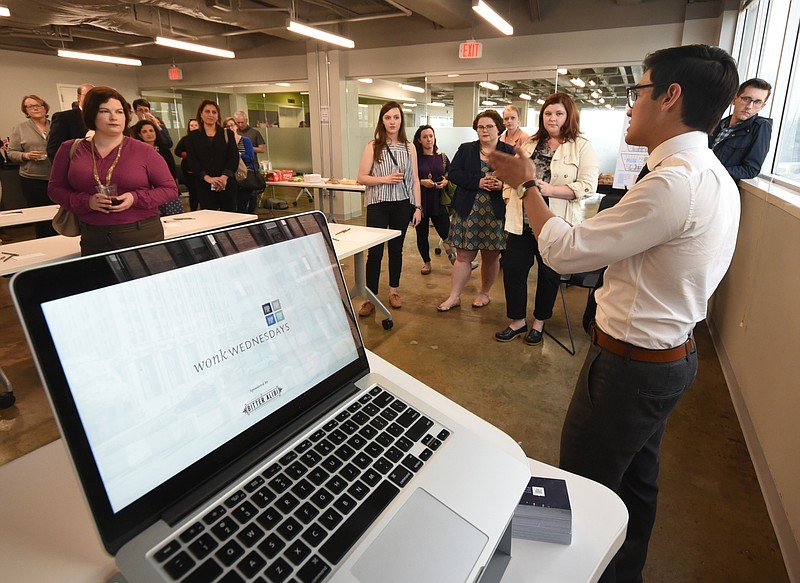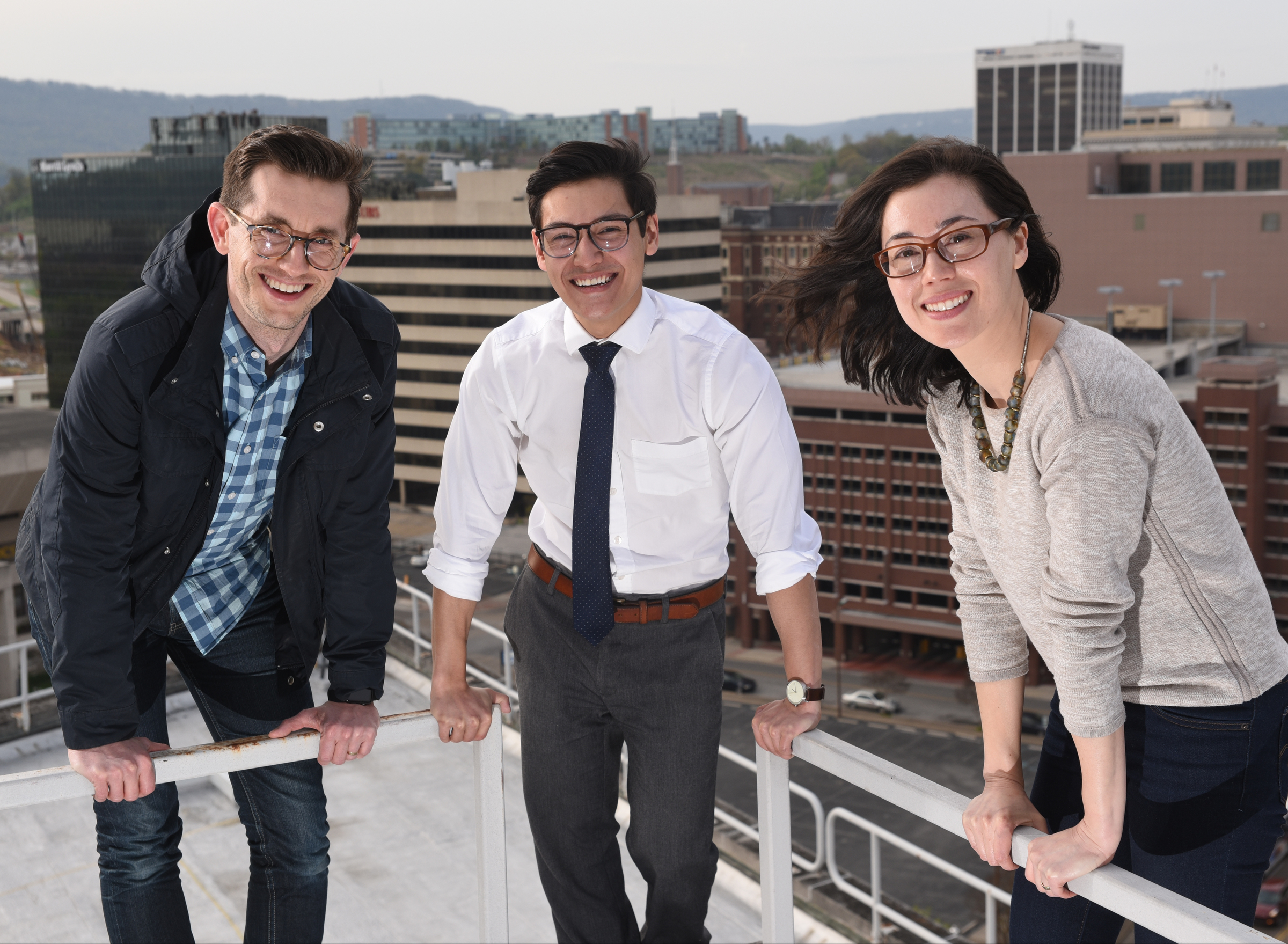I think that policy makers tend to make better decisions when they have better information, and there is a well-informed and engaged public advocating for where they want the community to go to.
More Info
For more information on the Metro Ideas Project visit its website at www.metroideas.org
A stuffy boardroom and 30 black and white pages of data analysis is not how the Metro Ideas Project approaches public policy.
Instead the team of three young thinkers is tackling the complexities of Hamilton County education spending and working to present that information in a digestible and engaging way to help inform lawmakers and taxpayers alike.
Stepping in to fill the gap created by the closing of the Ochs Center for Metropolitan Studies, the Metro Ideas Project has been weeding through dense school system budgets and data sets for the past nine weeks to calculate per-pupil spending at the school level - which varies among schools in Hamilton County. By tracking per-pupil spending and teachers' salaries at the school level the group hopes to help the community and its leaders evaluate each school's return on investment and issues of equity.
"Policy affects cities," said Joda Thongnopnua, executive director of the project. "We see a rare opportunity to impact our city in a powerful way through data- driven research."
The Metro Ideas Project is an independent, nonprofit research startup devoted to the analysis and design of public policies that can improve the nation's midsize cities. The group's first data-dive is into education spending, but it also plans to take-on research analysis on topics such as crime and housing.
Along with Thongnopnua, who has a background in communications, the Metro Ideas team consists of Policy Research Director Jacqueline Homann, who has a master's degree in public affairs and experience working with several international and federal institutions, and Projects Editor David Morton, a former political reporter for Nooga.com.
This week the group released an installment on its website that tracks and explains the Hamilton County Department of Education's revenue stream, which exceeds $400 million. Local funds account for 54 percent of the money, and the group shows with a graphic how relatively static that funding has been since 1998.
Over the next couple of weeks the group is expected to release more installments in the series, and it will conclude with policy recommendations.
Homann said digging into the simple question of per-pupil spending at individual schools has shed light on many more questions and issues within the school system.
"There is a real need for a better open data policy with the school system," she said. "Right now there is nothing."
Homann said she hopes her research and analysis will help elected officials think about education spending on an individual school level and not just as a big lump sum, and also give the Chattanooga community access to the data.
The data crunching and analysis the Metro Ideas Project is doing follows in the wake of the work of the Ochs Center, which was the city's source of local research for many years before closing in May.
"We couldn't do what we're doing now without the work of the people and organizations that came before us," Thongnopnua said. "But we are excited about taking a new approach in providing a much-needed service to our community and others like it."
David Eichenthal, who previously led the Ochs Center and is an unpaid senior fellow with the Metro Ideas Project, said there is a demand in Chattanooga for the type of work the center did, and he is glad Metro Ideas is taking up the mantle.
Eichenthal said the closing of the Ochs Center led many to believe that the support for such work no longer existed in Chattanooga.
"I'm really thrilled that the Metro Ideas Project is proving that notion wrong," he said.
The research and analysis the Metro Ideas Project is doing goes beyond the work of the Ochs Center, Eichenthal said, as this group is able to use more technology to make the data accessible and useable for those who want more information about their city.
"I think that policy makers tend to make better decisions when they have better information, and there is a well-informed and engaged public advocating for where they want the community to go," Eichenthal said.
Roger Brown, chancellor emeritus at the University of Tennessee at Chattanooga and a board member of the Metro Ideas Project, said the organization is a great opportunity for the city, as young talent is taking the time to help elected officials address issues more effectively.
Brown said it is helpful that all three of those working for the Metro Ideas Project have fresh eyes and perspectives, but also the guidance of board members and other researchers across the country who have been involved in debates around such issues for decades.
"I'm proud that this kind of talent is represented in Chattanooga," Brown said. "They are the generation that will be tackling these problems."
The Metro Ideas Project was given an initial two-year funding grant from the Lamp Post Group and will seek more funding from other sources in future years.
Barry Large, a partner at Lamp Post, said he saw an opportunity and a niche for the Metro Ideas Project to help Chattanooga and other similar cities, as he believes the research taking place here could spread to other places across the nation.
"It's exciting for us to invest in young people who are passionate about their work," he said. "This could really grow into something."
Large and other board members were adamant that the organization remain nonpartisan, adding that even among themselves there is diversity of experience and ideology.
Lori Quillen, who also serves on the Metro Ideas board, is the program officer at the Benwood Foundation. She said she views her role on the board as an adviser and a potential user of the findings.
"There aren't many issues in our community that couldn't be better understood or addressed with better research and information," Quillen said. "An organization like Metro Ideas is really thinking about how we can use that data and the potential of that data to better inform problems in our community."
Contact staff writer Kendi Anderson at kendi.anderson@timesfreepress.com or 423-757-6592. Follow on twitter @kendi_and.

